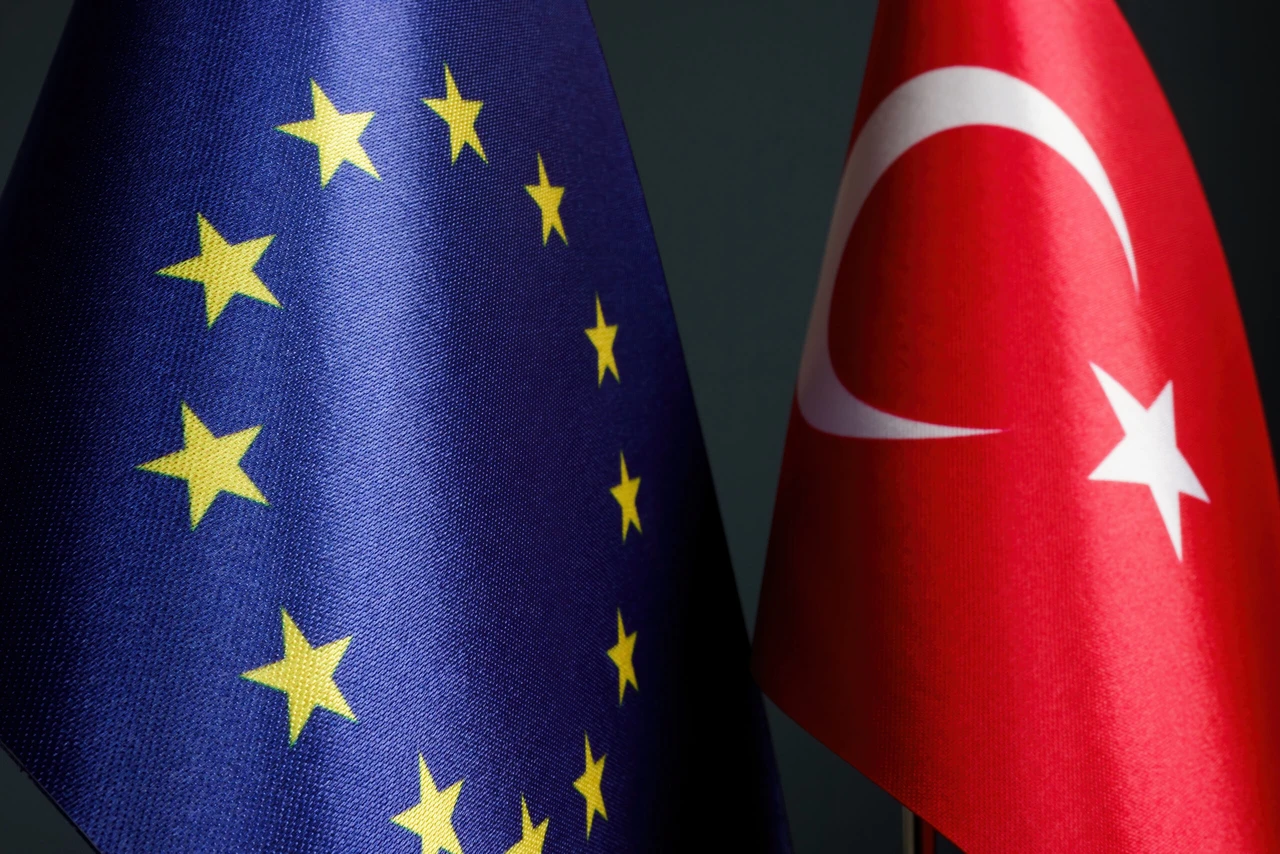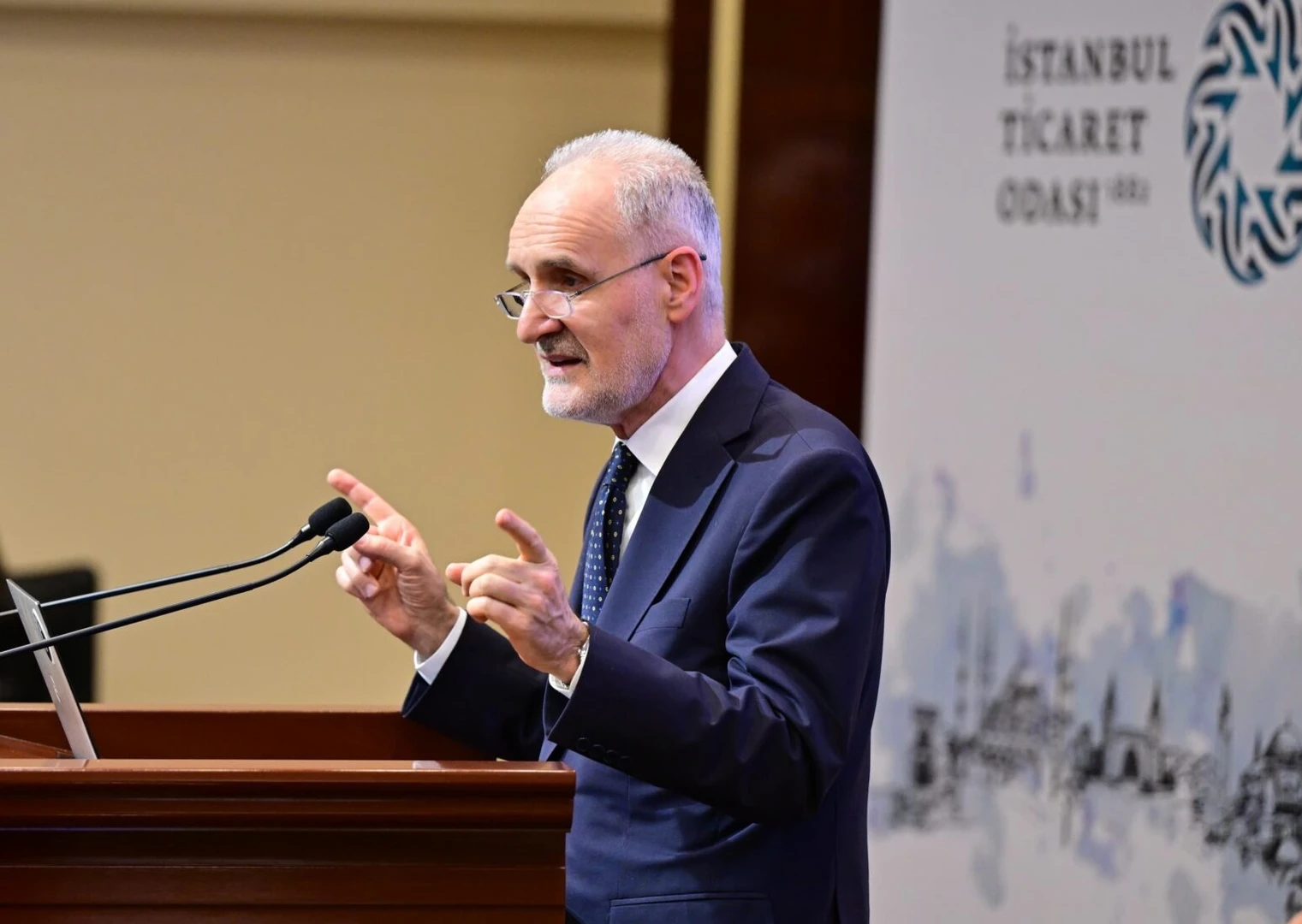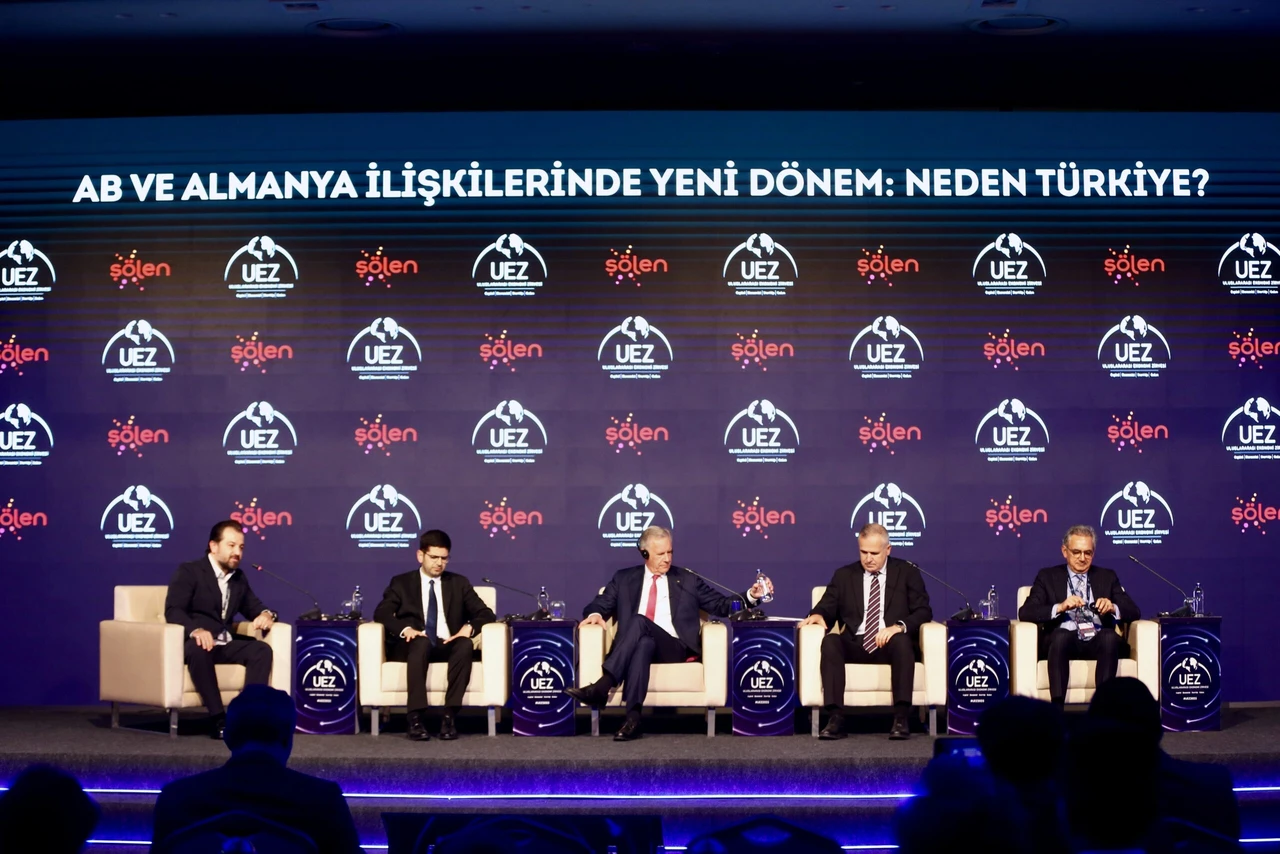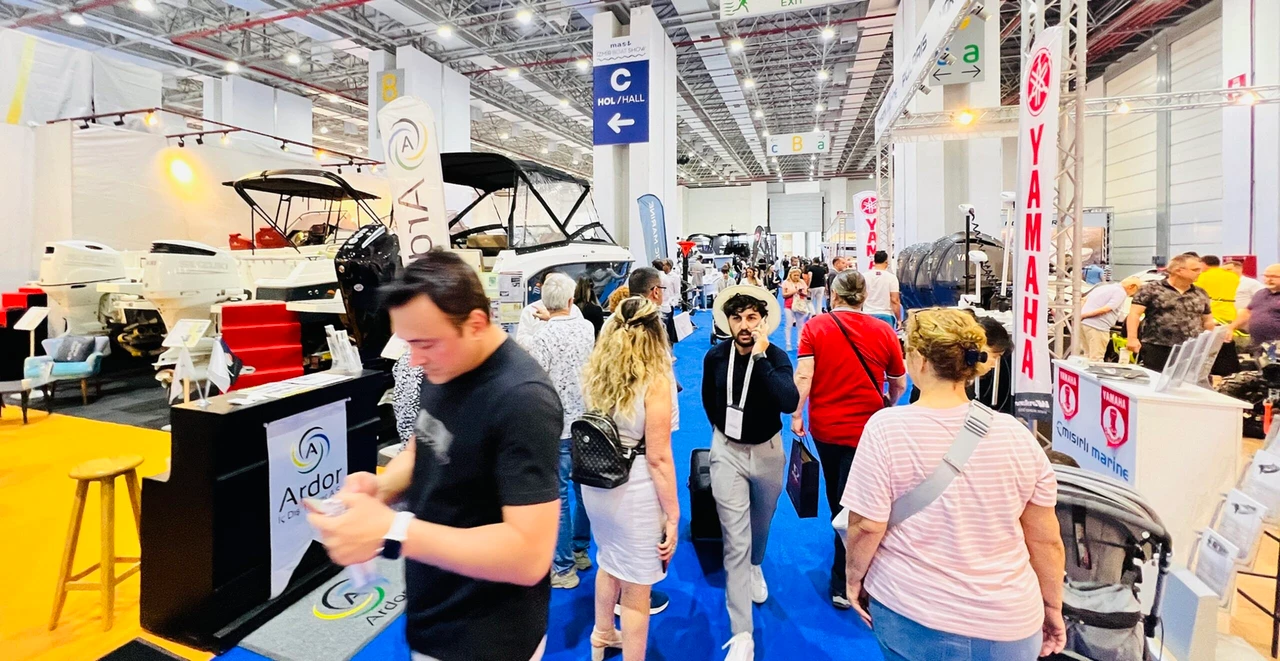‘EU must overcome political blindness toward Türkiye,’ Chamber of Commerce on accession talks
 File photo shows the EU and Turkish flags positioned close to each other at an undated time, accessed on March 14, 2025. (Adobe Stock Photo)
File photo shows the EU and Turkish flags positioned close to each other at an undated time, accessed on March 14, 2025. (Adobe Stock Photo)
Istanbul Chamber of Commerce (ICOC) President Sekib Avdagic urged the European Union on Friday to “overcome its political blindness toward Türkiye” and take concrete steps toward advancing long-stalled accession negotiations.
“The blockade on dialogue channels for Türkiye’s full EU membership must be lifted. We are in the right place, at the right time,” Avdagic said.
According to a written statement from ICOC, Avdagic discussed global developments and key issues affecting the business community during the chamber’s March assembly meeting.
“It is long overdue to take practical steps in accession negotiations that have been stalled for 20 years,” he remarked, emphasizing Türkiye’s evolving role in the global geopolitical landscape.

Avdagic underscored Türkiye’s potential as a major global economic and defense player, citing its “strong and indigenous defense industry, resilient and high-potential economy, strategic geopolitical significance, and unique geographic location.”
“We, as the Turkish business community, firmly believe in this vision. Now, we trust that our experienced statesmen will seize this opportunity and navigate Türkiye toward its rightful place in the global order,” he added.
‘Era of geopolitical balance of terror’
Avdagic pointed out that Europe, which has depended on Washington and NATO for security since World War II, now appears to be in a rush to establish a new security framework amid rising geopolitical tensions. He argued that the Trump administration’s policies had exposed European vulnerabilities, leading to heightened concerns in Brussels.
However, he questioned whether the EU was making the right moves in shaping its new security strategy. “It is clear that Türkiye, as NATO’s second-largest power, plays a crucial and deterrent role in ensuring Europe and the region’s security and stability,” he stated.
Avdagic suggested that in the past, Europe may have overlooked Türkiye’s strategic importance due to the absence of immediate threats. However, he stressed that the global landscape has changed, ushering in a new era.
Unlike many NATO members that scaled back their defense investments following the collapse of the Warsaw Pact, Türkiye continued to strengthen its military, he noted. “We had no choice,” he explained, citing regional instability in the Middle East, disputes in the Aegean, and ongoing terrorist threats along Türkiye’s borders.
Avdagic highlighted Türkiye’s rapid progress in defense technology, describing its domestically developed defense products as a key success story of the past two decades. “Türkiye has become a focal point for many countries due to its extensive production of weapons and ammunition,” he said, adding that in 2024 alone, Türkiye exported more than 300 defense products to 180 countries.
These developments, he argued, indicate not only a shifting global security order but also growing cracks within NATO. “The world has entered an era of geopolitical ‘balance of terror,’ and Türkiye is poised to be one of its key players. This presents a significant opportunity for the Turkish economy as well.”
Avdagic noted that these geopolitical transformations could pave the way for closer Türkiye-EU integration.
“We believe Türkiye has become more crucial than ever in shaping the new security architecture of Europe and the world,” he said, emphasizing that Türkiye’s close relationships with the U.S, Russia, and the EUpresent a significant opportunity for global peace and stability.



